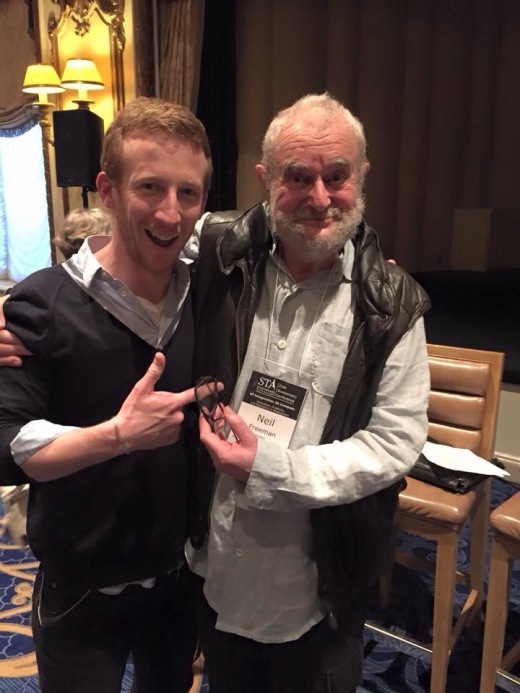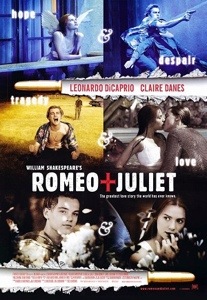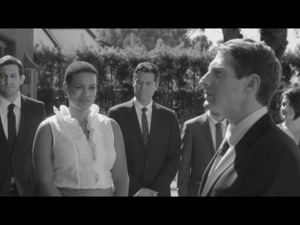The 2013 Broadway revival of Romeo and Juliet has recently been released to DVD and video on demand. I, of course, purchased it immediately upon this realization. It is my FAVORITE play after all, and this production stars my boos Orlando Bloom and Condola Rashaad. Friends, I didn’t love it. I wanted to to. Couldn’t.
My first issue is the pace. They go full throttle for two hours traffic. Perhaps I should be congratulatory here, but everything feels rushed, not urgent, not passionate, not high stakes, just clumsily hurried and therefore a bit overwhelming. Second is the cut. This is also linked to the pacing issue; with everything going whiplash fast and a very lean cut, I feel like I’m missing some pivotal opportunities for character and relationship development. It seems the goal is to be edgy, urban, grunge. Romeo rides in on a motor cycle, the major scenic element is a wall covered in spray paint tags, scaffolding for a balcony, and there oooo fire. But this push to make it swift and lean and for a younger audience is largely unsuccessful.
I don’t know how director, David Leveaux, would speak of his concept, but race concious casting was certainly an element. The Montagues are a white family and the Capulets a black family. Not novel, not fresh, not revealing of anything but also not an obstruction. I worry that a choice like this is asking the text to say something it isn’t, but it isn’t heavy handed here, just circumstantial. Fine. A shame other ethnicities aren’t woven into this particular contemporary urban “Verona” community. But this I can get over. What I can’t so easily dismiss is the lack of chemistry. On all counts.
Not only is there no chemistry between R&J, but there seems to be complete disconnects throughout the whole cast. Juliet and her nurse, nothing. Mercutio and the boys, nope. Even the easy, if not cliche, oft played Lady Cap & Tybalt affair was absent. So what’s the tragedy if nothing was ever at stake. If there is no love in any case then who cares. Maybe you’ve all felt this way all along, after all I’ve seen the meme

But it is a love story. A tragic “romance,” sure, but the love I’m interrogating is found in the make up and construct of all the surrogate relationships. The nurse, the friar, the fraternal bonds that all make up for lack of parental oversight. I know, I know, too academic, but my point is there is absolute love in the text. There was none in this production. There are some good performances (Bloom is serviceable in his delivery) and a few visually striking moments (remember, fire), but more than anything it makes me hungry for a really really good R&J.
So I’ve now spent a few days down the wormhole of video on demand Shakespeare. I have to say to all the dissenting voices, pleading, “not another Romeo and Juliet.” Yes another. Please. I am still desperate for a R&J I can watch in my living room that has the excellent visual metaphors and accessibility of Baz Luhrmann’s 1996 version, but with actors who can make absolute sense of the language and capture the joy and heartbreak and complexity and LOVE in these characters and relationships.






